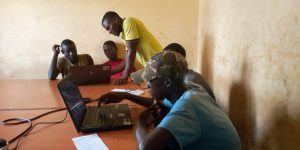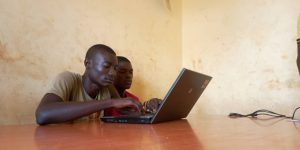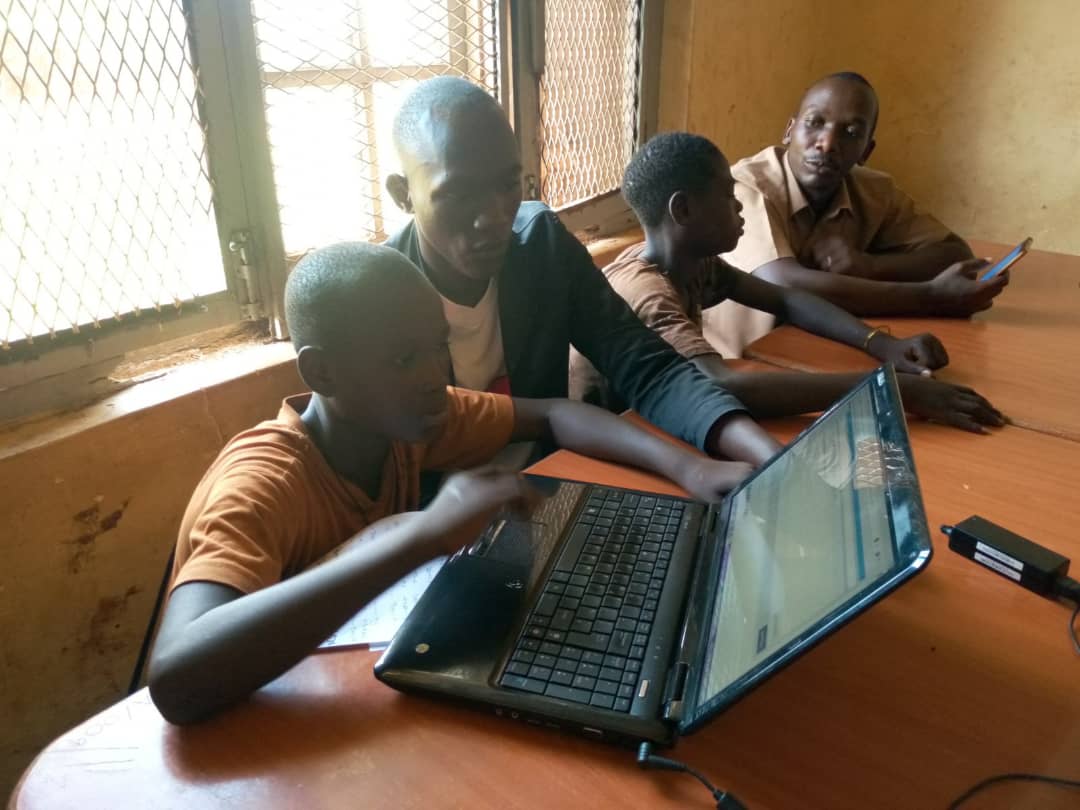This month’s debate was ‘What could your community do differently to make sure everyone understands children’s rights?’. It was a very active debate with answers coming from 5 continents! The debate received 76 comments and was viewed 536 times. The debate also sparked conversation as individuals questioned each other about what they believe are the best ways of making sure communities understand children’s rights. Overall, this led to a highly interesting and informative discussion.
Some people thought there should be more sensitisation and awareness raising in schools, at sports events and in places of worship throughout their communities.
“Organizing monthly sports activities in a community with a theme on each right will help community understand children’s rights” – Hadijja, Uganda
 “We can start from the compulsory education that everyone can learn basic knowledge and what those rights mean. Also, people in a community communicate often and keep eyes on/take care of children in community as a community, so that children can grow up safely in a community.” – Amanda, Japan
“We can start from the compulsory education that everyone can learn basic knowledge and what those rights mean. Also, people in a community communicate often and keep eyes on/take care of children in community as a community, so that children can grow up safely in a community.” – Amanda, Japan
“Putting children’s free service centers where anyone can access information”– Komakech, Uganda
“Talking about child rights in churches and mosque” – Yazid, Uganda
Others thought involving children more in community meetings and activities could help communities understand children’s rights.
“I think if children attend given chance to participate in all community meetings it would be a nice idea to help make people understand children’s rights” – Sadat, Uganda
“Electing children’s committees in every community that is responsible for children’s rights” – Tendo, Uganda
“Here in the UK, Children are expected to have rights and to be treated in a certain way. Although this is not always the case, the law gives children rights and more importantly the law enforcement will act upon it if there is an injustice. Therefore, I think encouraging children within their own communities and doing youth led events will go alongside standing up for children’s rights. Youth are the way forward.” Anon, UK
Some discussed the lack recognition in European countries about children not receiving their rights. There is a perception that it is only in ‘other’ places where children are lacking what they deserve.
“In Germany, I think the wider community considers widespread child rights abuses to be something that occurs in other countries. I think they trust that German institutions will, for the most part, get it right and that cases of children not accessing their rights are extreme outliers […] Public education should not only focus on what the rights of the children are, but also the possible consequences of them not being accessed. Education of police departments in this regard is also important.” – Bek, Germany
Whose responsibility it was to ensure the community understands children’s rights was also discussed.
“We could start by educating about what human and children rights are – and then we need to make sure that governments are exemplary in passing laws that protect rather than abuse our rights.’ – Debs, UK
 “Communities should join hands together with police so as to protect street children at night.” – Matthew, Uganda
“Communities should join hands together with police so as to protect street children at night.” – Matthew, Uganda
“its the goverment’s responsibility/role to remind the community with iron hand of children’s rights and responsibilities”– Isaac, Uganda
“Parents/guardians should sensitize their children about their rights such that they get to know them and by so doing, it will lead to understand children rights.”– Sharif, Uganda
Some thought of innovative ways to spread messages about children’s rights using the media
“Having weekly community radio talk shows in every community will make people understand rights for children “ – Jessy, Uganda
“Putting children’s rights adverts on radios television and news papers” – Emma, Uganda
However, only one respondent talked about the importance of girls rights specifically meaning that maybe this is an area we should explore further in the future.
“We should always remember that extra steps/action might be needed to support girls & young women in voicing their points of view. They often face additional barriers which limit & hinder their potential.” – VeroNika
Some were worried about the fact that children’s rights aren’t achieved everywhere and others think that maybe children’s rights aren’t achieved as they are too far fetched.
“I worry that human rights are just an idea we keep in books and people are not truly committed to achieving them. Otherwise, why would we have anyone living on the streets, let alone children?” – Gavin
“Did you ever think that human and children’s rights might be too ambitious? Maybe we need to start smaller and work our way up to this level? It just feels like no one takes them seriously and don’t mind failing them at the moment so what’s the point?” – Gracie, USA
Conclusion
Overall, there was a huge variety of view points brought out in the debate. We discussed how to educate communities, who should be responsible for this education and which rights needed to be addressed. An interesting additional question which came out in the debate asked about how people act on achieving children’s rights when they have limited money to do so. This was discussed between a few respondents who gave some very insightful responses. Maybe this is another area we could debate further in future?
As always we are interested in your feedback as we are keen to reach even more people next month! Thank you for being part of the inequality question and we hope to have you debate with us again next time!





0 Comments